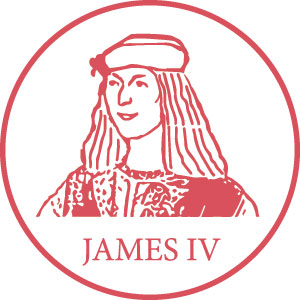U.S. Traveler Advice
FROM A FORMER JAMES IV TRAVELLER ADVICE TO FUTURE TRAVELLERS
PLANNING:
When planning the trip it is advisable to attempt to identify an individual member in each location to help plan and coordinate your visit. In those instances where a member is not geographically proximal to a desired institution site, you should make arrangements and provide your city/country host with this information.
Indicate what your special interests are and then give this individual a fairly free hand at planning your visit, as they are generally better acquainted than you are with the highlights of their environment. You certainly should provide specific opportunities which you would wish included in your itinerary.
Depending on the center you are visiting, a stay of 5-7 days is usually optimum. Some travelers do stay for only 2-3 days at a center but too many abbreviated visits may dilute the experience.
When planning your itinerary, it is important to plan some time off to rest and collect your thoughts. Many of your days will begin early in the morning and end late in the evening.
I spent most weekends on sightseeing excursions as there is very little academic activity during this time. These excursions often provided me with a unique opportunity to gain some insight into the environment and culture I was visiting. In many instances, I requested the individual who was arranging my visit to also suggest and make the appropriate reservations for these excursions. I was never disappointed.
RECORDS
Throughout my entire trip I kept notes in a small pocket notebook. Each evening I wrote out a more complete description of each day's activities based on the cursory notes I had made during the day. This activity tended to be time consuming and often occurred late at night. I regret not having taken along a small pocket dictating machine for this purpose.
TRAVEL AND ACCOMODATIONS
Travel and accommodations have in recent years become extremely expensive and may present a serious problem with a limited budget. It is well worth the time taken in investigating the large number of special airline tickets available with the different airlines.
Many university medical centers have special accommodations for visitors Although these accommodations are not as elegant as many of the popular hotels, their rates are much more reasonable. I stayed at several and as a rule found them a welcome relief from the "impersonal" hotel. For each location you plan to visit, it is worth inquiring about these accommodations.
TRAVEL LIGHT
The biggest mistake I made was that I brought too much luggage! I could have easily managed with half the clothes. In retrospect, it became apparent that you do not require more clothes than you normally take for a 7-10 day trip. Laundry was easily arranged everywhere I stayed. I had taken along a number of books and texts as I had expected to have some free time. As it turned out -1 had none. The only reading I did was in airports and in flight. I eventually shipped most of my reading material back home.
COMMUNICATIONS
Maintaining contact with both my home and office was important because of my prolonged absence. The choice of sophisticated communication networks available today are numerous and should pose no problem for the traveler.
ADDITIONAL ADVICE FROM A RECENT TRAVELLER
- Bring your family if possible. It is the chance of a lifetime to see the world together
- Prepare at least six short(30 minute) talks, and be flexible. Travelers from the United States should consider a managed care-type talk as hosts are very interested in this phenomenon.
- Schedule days off during the trip for touring and rest.
- Try to get an agenda or itinerary from each host in advance
- Bring ATM cards, a walkman, and your exercise clothes
- Request time in the operating room with your hosts
- Read up on the land you are visiting
- Leave your practice and administrative responsibilities at home
